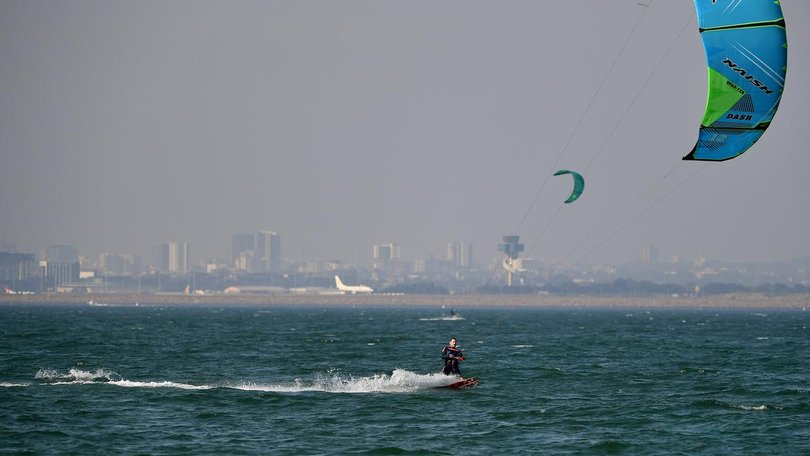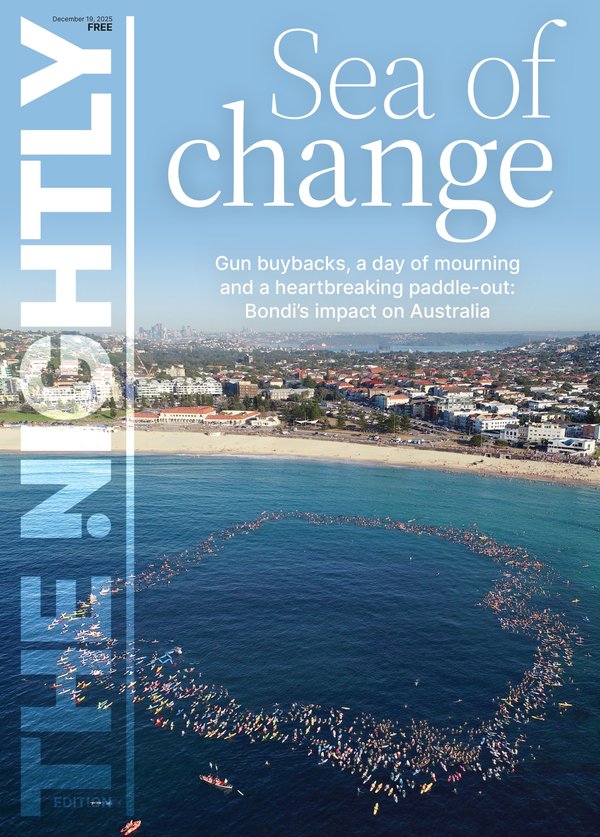Tower Beach: Popular Sydney beach set for cancer-causing chemical testing

Australia is being urged to implement a single oversight body to deal with potential cancer-causing chemicals in water, as a popular swimming spot undergoes testing.
Sydney’s Tower Beach, on Botany Bay, will be tested for PFAS substances as swimmers and fishers continue to ignore signs instructing them to avoid the water.
PFAS are a group of more than 15,000 chemicals resistant to heat, stains, grease and water, earning the nickname “forever chemicals” due to their inability to break down.
Sign up to The Nightly's newsletters.
Get the first look at the digital newspaper, curated daily stories and breaking headlines delivered to your inbox.
By continuing you agree to our Terms and Privacy Policy.The NSW Environment Protection Authority tested commonly caught fish in Botany Bay and the nearby Georges River in 2018 and issued dietary advice after finding PFAS, although it recommended limited consumption of fish caught in the area rather than an outright ban.
Sampling undertaken by Airservices Australia indicated the historical use of firefighting foam at the nearby Sydney Airport was the likely cause of the contamination.
“The current precautionary dietary advice remains in place, however PFAS use in firefighting foam is being phased out and any offsite impacts have been reduced over the last few years,” a NSW EPA spokeswoman said on Wednesday.
“The EPA will arrange for further testing to confirm the precautionary dietary advice is still valid.”
A NSW government spokeswoman said community concern surrounding PFAS was justified, but pointed out the state did not have jurisdiction over Sydney Airport.
“The NSW EPA will conduct further testing in the area to provide updated information about Tower Beach to the community ... the expectation is that landholders will update signage in line with that advice, as soon as possible,” they said.
John Dee, who started the Stop PFAS group after the chemicals were found in his local tap water, said the Botany Bay contamination was another example of “too much buck-passing and inaction between agencies”.
“To stop that, we need a single public authority with comprehensive responsibility for overseeing PFAS contamination management and removal,” he told AAP.
“The risks of PFAS are not being appropriately managed ... authorities have known for years that this area has serious levels of PFAS chemicals and they’ve not done anywhere near enough to protect the public from the health impacts of these forever chemicals.”
Global concern is on the rise about the health and environmental effects of the family of PFAS chemicals, which can accumulate in plants, animals and people.
They have been linked to deadly cancers, impacts on the liver, heart and immune system, and developmental damage in children.
